The Imitation Game is a solid and effective bio-pic elevated by a sharp script from Graham Moore, tight direction from Morten Tyldum and a superb central performance from Benedict Cumberbatch. There are points where the film seems to over-simplify its protagonist, trying to reduce his fascination with computers to a series of Freudian quirks, but the movie is held together by witty dialogue and a mesmerising turn from its lead actor.
Alan Turing is one of the most influential scientific thinkers in the second half of the twentieth century. Early in the film, Commander Denniston lists off his accomplishments, and it’s quite an impressive list. However, he is somewhat more modest in his assessment. Measuring himself against Einstein and Newton, he quips, “I’m about making par.” Nevertheless, Turing was active in a large number of fields, most obviously computers and mathematics.
The Imitation Game occasionally over-plays its hand in this regard. In a conversation, he outlines his vision of a mechanical brain to young code-breaker Joan Clarke. She speculates about the potential of these so-called “computers.” Just in case the audience can’t keep up, the film’s closing text rather pointedly clarify that these so-called “Turing machines” have been realised, albeit under a different and more generic name. As the film points out, we call them “computers.”
Turing’s life lends itself to drama. There are quite a few interesting stories to tell about the man and the world in which he lived. There is the story of he prosecution in the early fifties, when he was arrested on charges of “gross indecency” and chemically castrated from the crime of being homosexual. The BBC covered this era of his life in Cracking the Code in 1996, a film starring Derek Jacobi as Turing.
However, the story of Turing’s arrest and prosecution must be informed by his heroic service to his country in the Second World War. It is remarkable that nobody came to the aid of a veteran who had saved countless lives. Nobody spoke out in his defence. Nobody protected him. The Imitation Game rather deftly ties these two stories together, with a narrative that jumps around between these eras and beyond.
There is a sense that The Imitation Game is being a bit too clever for its own good. Flashbacks to Turing’s childhood feel somewhat gratuitous. The depiction of his life as a young bullied child at a prestigious school is quite familiar – it is a practically a cliché in these sorts of stories about what one of Turing’s colleagues describes as “irascible genius.” These flashbacks feel rather rote, and insist on tying a bow around the rest of the film.
The Imitation Game very cleverly mines Turing’s obsession with cyphers and codes for metaphor. When his classmate explains that a cypher is used to hide what people really mean, Turing replies, “How is that different from talking?” The idea that a man who cracked a top-secret code should have to conceal his own secrets is poetic; the irony of having Turing decipher enemy communications while being unable to understand those around him is powerful stuff.
The film rather cleverly ties Turing’s theories about identity and self-awareness into his personal circumstances. The eponymous riddle sits at the centre of a key thematic sequence – the film invites the audience to wonder why Turing was so fascinated by the idea of convincing somebody else of who you are. The Turing Test is rendered as pop psychology, but it works very well in context. Moore is very good at scripting banter, and Tyldum keeps the movie ticking along at a nice pace.
Again, there is the faintest sense that The Imitation Game’s reach exceeds its grasp. The Imitation Game seems obsessed with twists and reveals, befitting a movie about cracking codes and figuring out complicated sequences. The narrative jumps around, to the point where the opening dialogue is taken from the middle of the framing story, rather than the start of it. It’s an appropriate way to structure a film about Turing, but it does hurt certain character and plot developments.
Much like the fact that we are all living in a world populated with “Turing machines” is treated as an earth-shattering revelation, The Imitation Game tries to build a major twist into Turing’s childhood flashbacks. It is a plot point that is quite easy to spot ahead of time, proving that the script is not very well encrypted. More than that, it reduces Turing’s interest in computers to a two-dimensional Twilight Zone shock rather than something complex and multi-faceted.
Still, The Imitation Game is very much a showcase for Benedict Cumberbatch. This is a chance for the actor to really demonstrate his dramatic skills, and he rises to the occasion. Without a strong central performance, The Imitation Game could easily seem like a collection of vague pseudo-psychological musings about its lead character. However, Cumberbatch finds the humanity at the heart of the script and turns Turing into a truly fascinating protagonist.
Cumberbatch is ably supported by a wealth of British talent. Charles Dance makes a suitably grumpy and threatening authority figure in the role of Commander Denniston. Matthew Goode is suitably smarmy in the role of the more charming Hugh Alexander. However, perhaps the most intriguing supporting performance comes from Mark Strong as the enigmatic and inscrutable Stewart Menzies. Menzies was the man who founded Military Intelligence Six, and skirts around the edges of The Imitation Game like a predator.
The movie also benefits from strong direction by Morten Tyldum. It is very hard to treat simple mechanics and computer calculations as compelling material, but Tyldum does a great job at capturing the mystique and the tension around Turing’s attempts to build “a thinking machine.” There’s a beautiful moment when the machine actually works, where Tyldum cleverly underplays the scene. It feels almost like an anticlimax, as Turing and the audience are faced with the reality that the computer has finished.
It is a beautiful little detail, one that almost perfectly captures the real-life experience of getting an errant piece of technology working – the frustration and the constant pressure becomes so familiar that it is practically background noise; when that all disappears because the machine is doing what it is meant to, there is a noticeable void. It’s a very effective sequence, and it speaks to Tyldum’s ability as a director.
Tyldum also works hard to give The Imitation Game a sense of scale and context. This is, after all, a very particular story of the Second World War, playing out in a very confined environment. Turing and his experts did not live in fear of bombing raids or armed forces. There was a different kind of pressure at play. Tyldum occasionally cuts outside the secure compound to help give a sense of the real world that exists and struggles on outside Turing’s machine. It reminds viewers of the cost and consequence of what unfolds.
The Imitation Game is a solid biography, albeit one that is occasionally over-indulgent and a little too fond of twists and riddles for its own good. Nevertheless, it features a strong central performance, nice dialogue, a solid ensemble and great direction.
Filed under: Non-Review Reviews | Tagged: alan turing, Benedict Cumberbatch, bfi, mystery, non-review review, review, second world war, the imitation game, the turing test, turing, world war two |















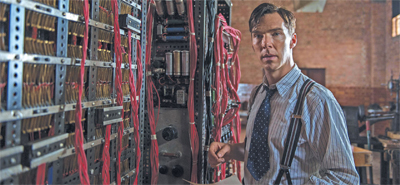

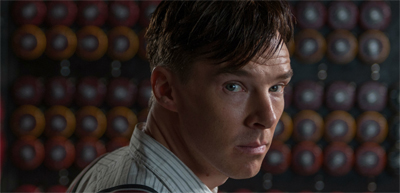

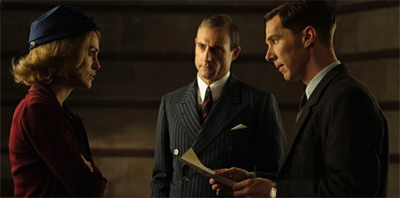

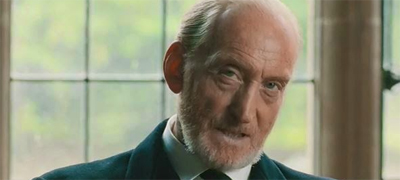
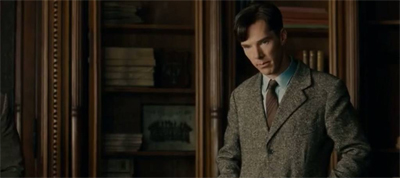





Leave a comment